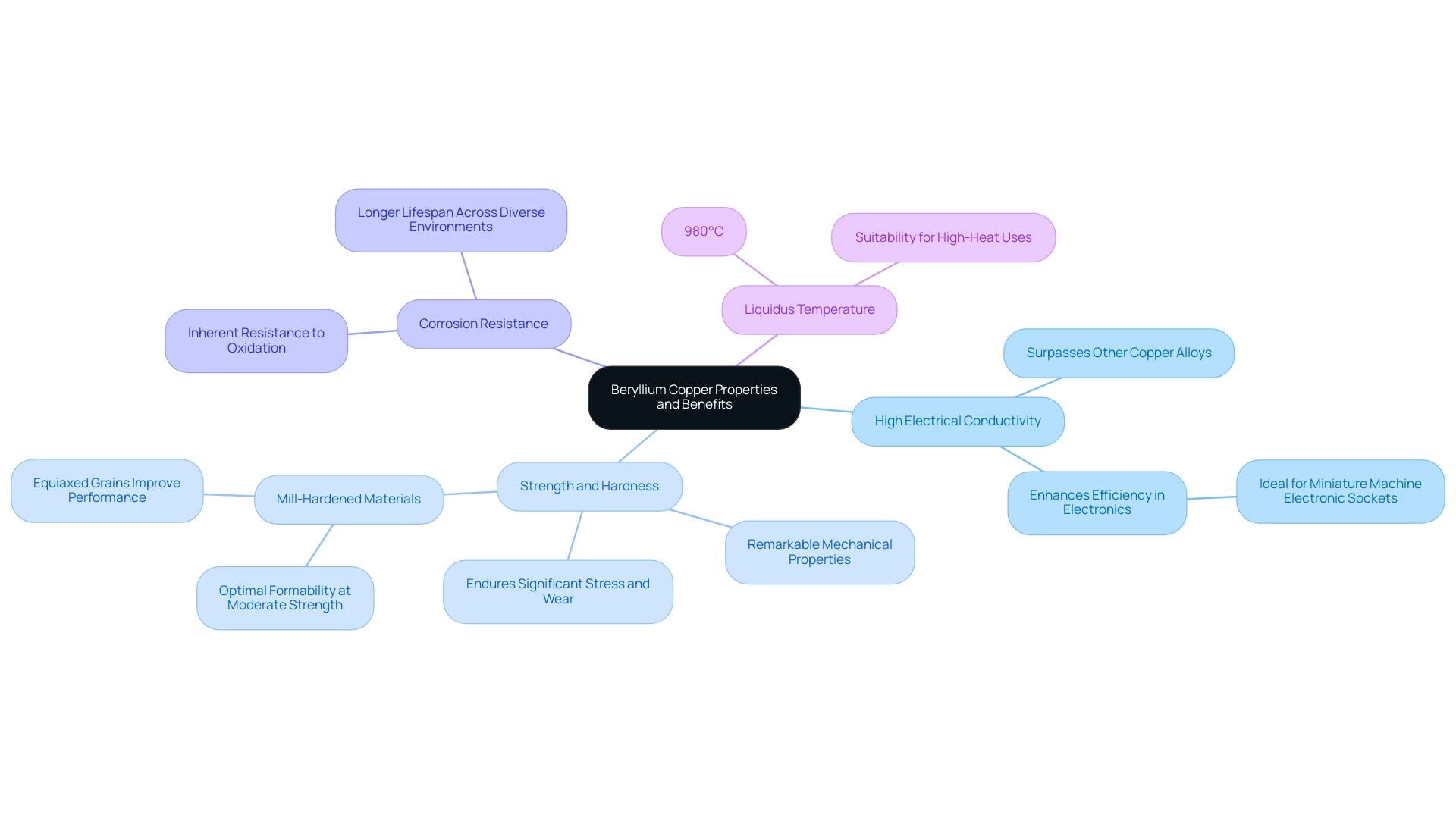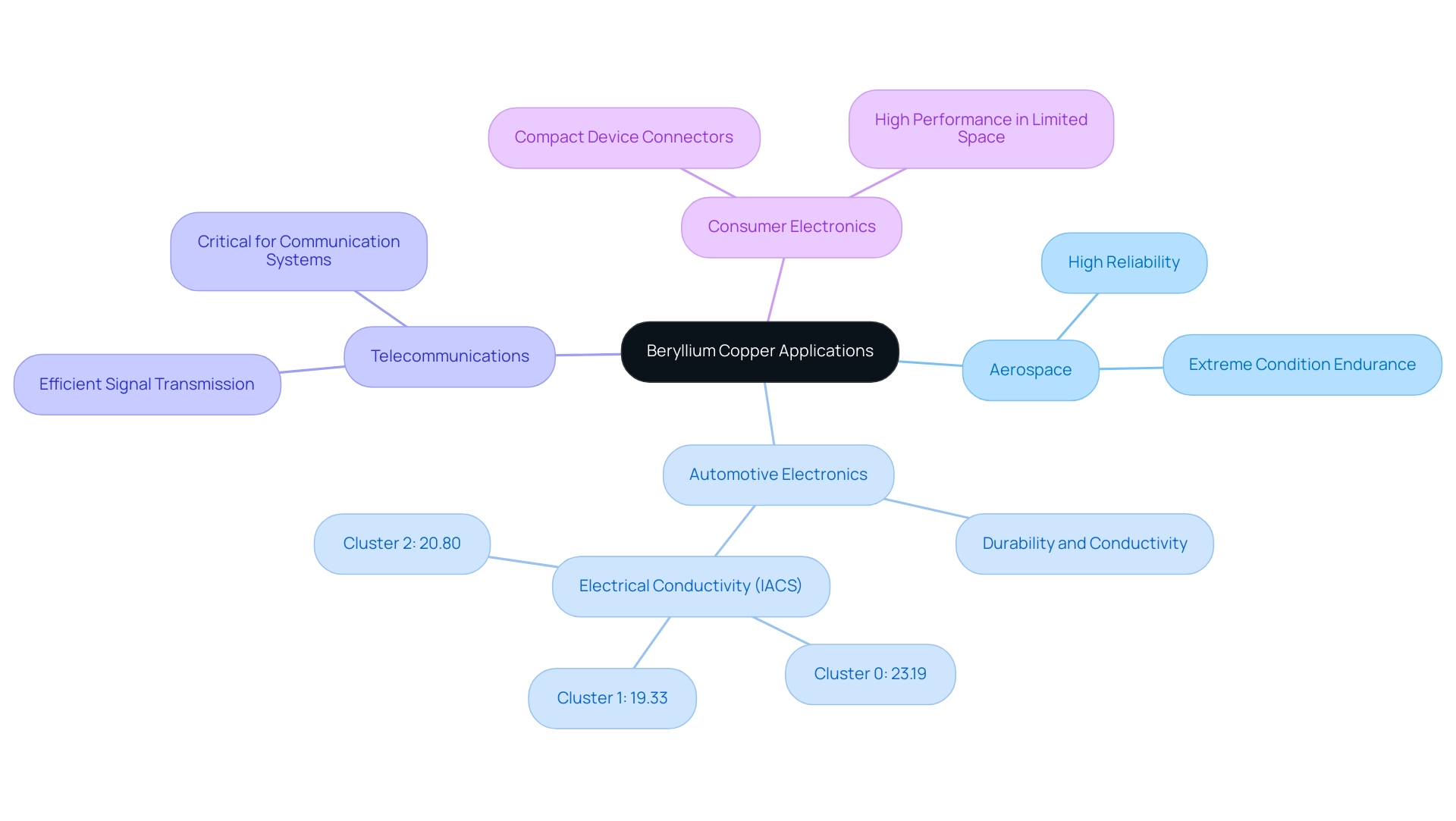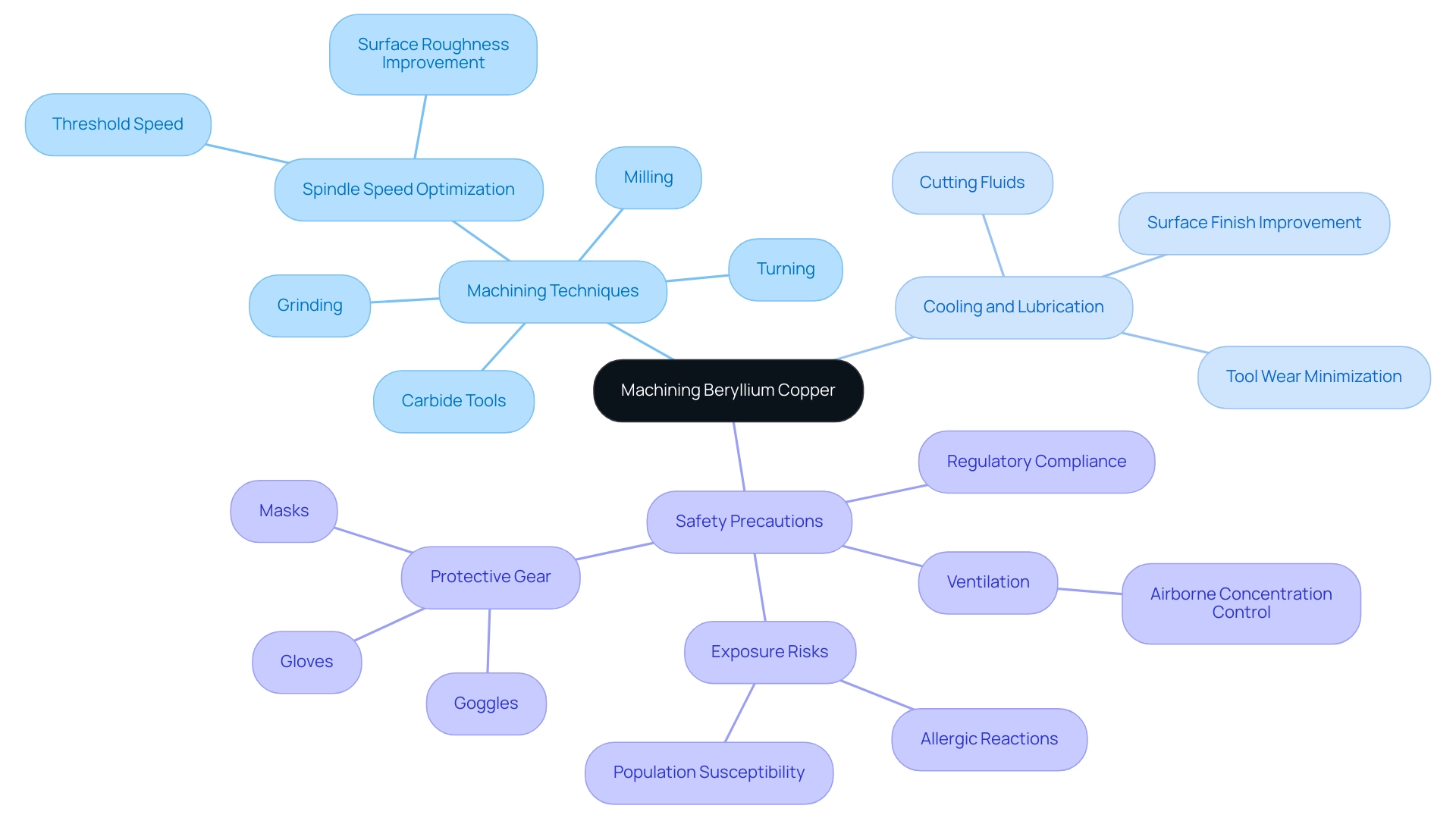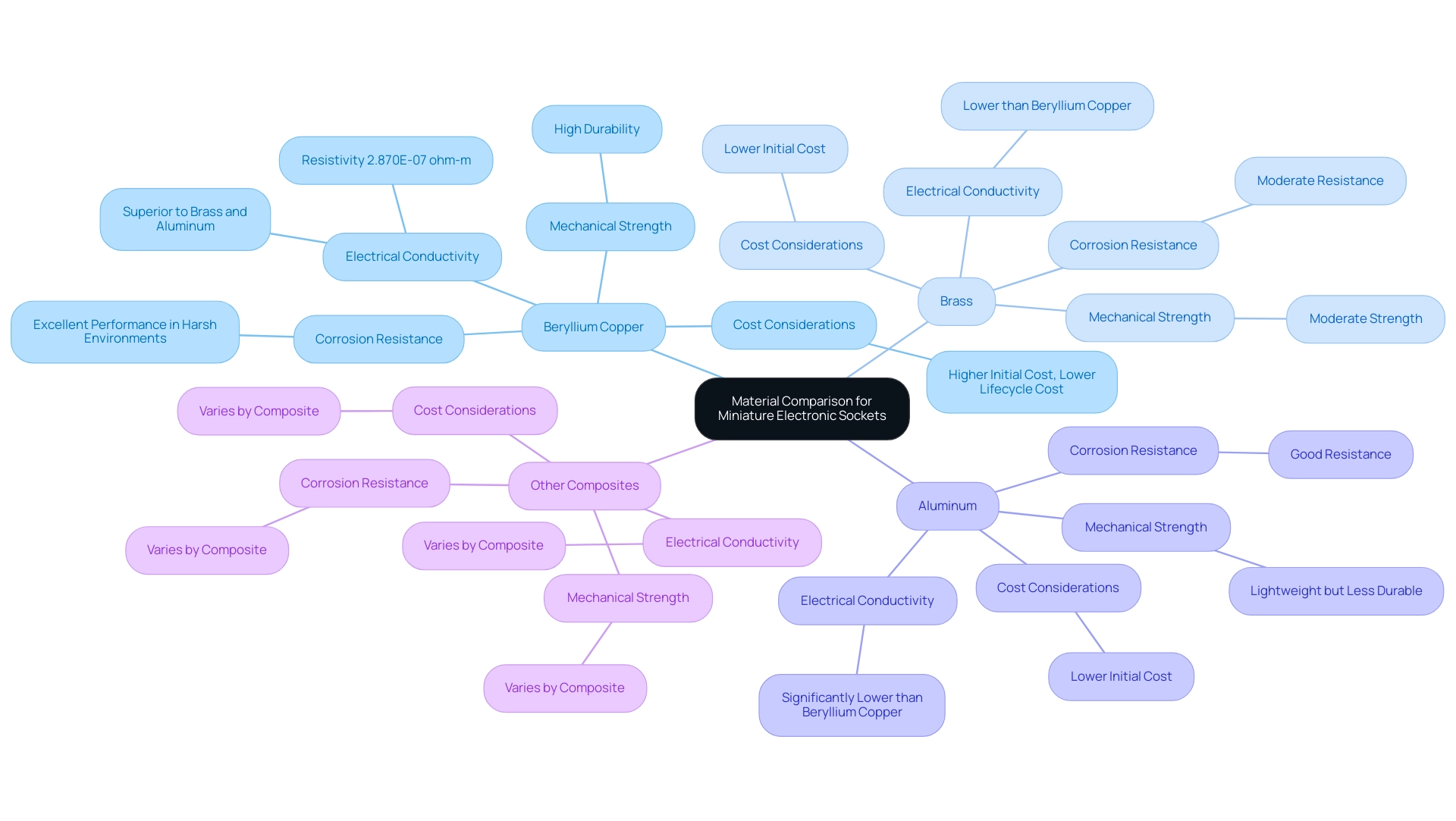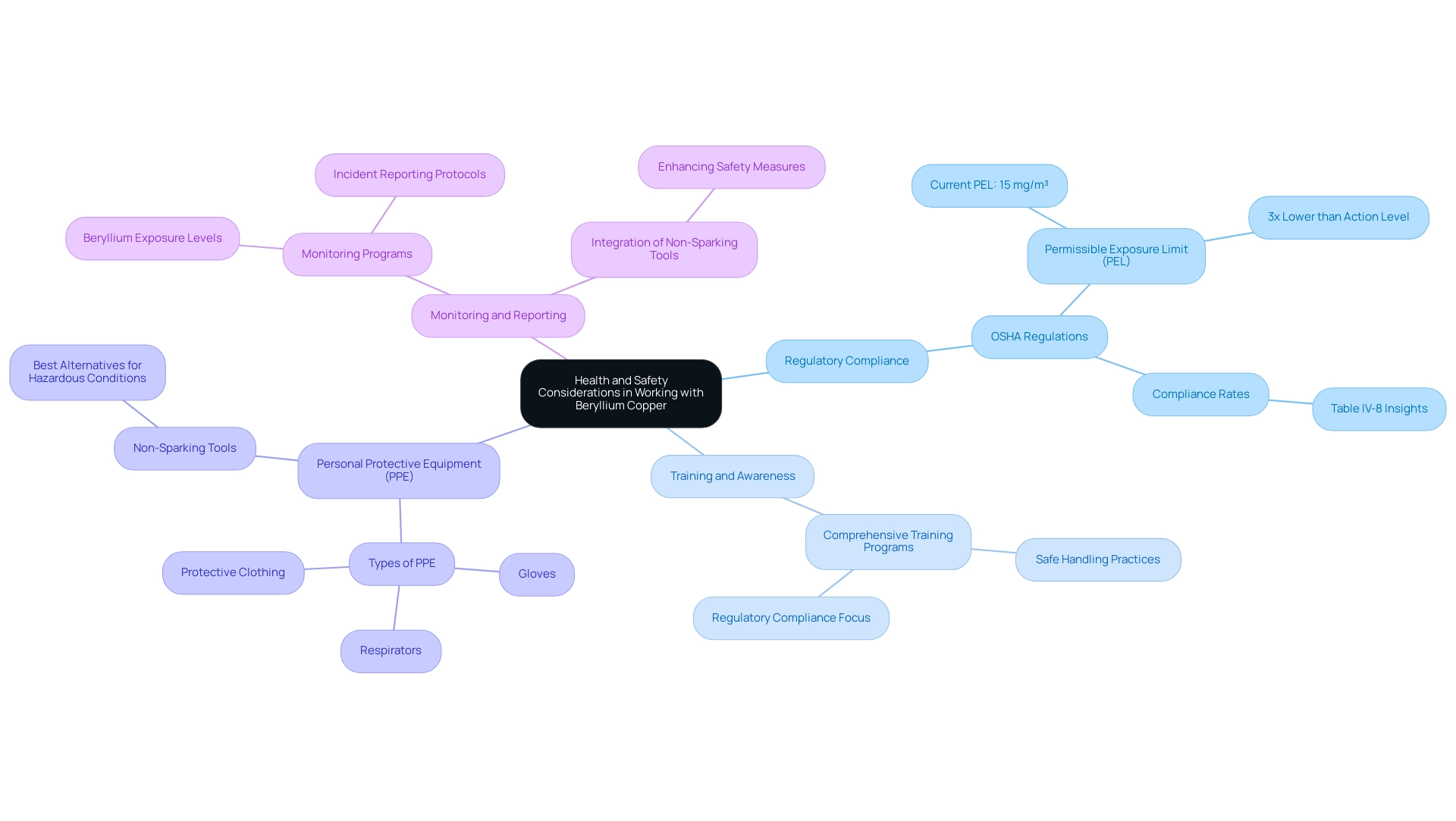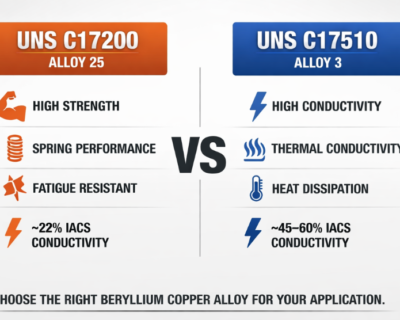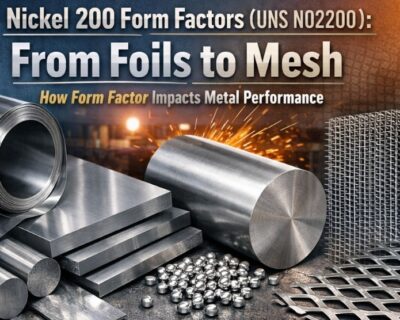Blogs

How to Choose Beryllium Copper for Miniature Machine Electronic Sockets: A Step-by-Step Guide
Introduction
Beryllium copper has emerged as a cornerstone material in the realm of miniature electronic connectors, offering a unique blend of properties that address the demands of modern technology. Renowned for its exceptional electrical conductivity, mechanical strength, and corrosion resistance, this high-performance alloy is increasingly being recognized for its critical role in various applications, from aerospace to consumer electronics.
As industries continue to evolve, understanding the benefits and applications of beryllium copper becomes essential for procurement managers seeking to make informed decisions that enhance operational efficiency and reliability.
This article delves into the key properties of beryllium copper, explores its diverse applications, and highlights important safety considerations, equipping professionals with the insights needed to leverage this remarkable material effectively.
Understanding Beryllium Copper: Key Properties and Benefits
This metal alloy stands out as a high-performance material renowned for its exceptional electrical conductivity, strength, and fatigue resistance, making it an ideal option for uses demanding durability and reliability. The key benefits of this alloy are multifaceted:
- High Electrical Conductivity: Beryllium copper boasts conductivity that surpasses many other copper alloys. This feature is particularly beneficial in electronic contexts where beryllium copper for miniature machine electronic sockets enhances efficiency.
- Strength and Hardness: The alloy’s remarkable mechanical properties enable it to endure significant stress and wear, making beryllium copper for miniature machine electronic sockets especially critical. Mill-hardened materials attain optimal formability at moderate strength with equiaxed grains, improving the alloy’s performance in diverse uses.
- Corrosion Resistance: Its inherent resistance to oxidation and corrosion contributes to a longer lifespan across diverse environments, enhancing overall operational longevity.
- Liquidus Temperature: With a liquidus temperature of 980°C, the alloy demonstrates its suitability for high-heat uses, further solidifying its role in advanced manufacturing.
Understanding these properties is crucial for making informed procurement decisions regarding electronic connectors. DOMADIA Copper adheres to international standards like UNS and ASTM, guaranteeing its reliability and quality in industrial uses. Recent developments in the usage of beryllium copper for miniature machine electronic sockets continue to showcase its adaptability, especially in the electronics field, where high-performance materials are becoming more sought after.
A case study titled “Micrographs of Alloys” illustrates the microstructural characteristics of various alloy combinations, showcasing the distribution of phases and grain structures, which provide visual evidence of the alloy’s microstructural features and mechanical properties. As highlighted by specialists, the use of beryllium copper for miniature machine electronic sockets in electronic connectors demonstrates its essential role in contemporary technology, guaranteeing both reliability and efficiency. This combination of qualities establishes beryllium copper for miniature machine electronic sockets as a fundamental element in the creation and production of advanced electronic components, while items such as the Copper Non-Sparking Wrench further improve safety and performance across diverse industrial uses.
For detailed pricing and inventory information on Copper Strips, please refer to our product catalog. To discover more regarding the uses and advantages of Copper Be, take a look at our extra resources and articles.
Applications of Beryllium Copper in Miniature Electronic Connectors
The preferred material for numerous small electronic connectors is beryllium copper for miniature machine electronic sockets, due to its excellent characteristics that improve performance and dependability. At Domadia, we take pride in being a leader in providing and producing high-performance Copper Plates designed for various industrial uses. Key applications include:
- Connectors in Aerospace: Within the aerospace sector, beryllium copper is crucial for connectors that must endure extreme conditions, ensuring high reliability and performance in critical systems.
- Automotive Electronics: In automotive uses, beryllium copper for miniature machine electronic sockets is integral to connectors that require exceptional durability and electrical conductivity, vital for efficient vehicle operation. Significantly, the alloy exhibits remarkable electrical conductivity values of 23.19% IACS for Cluster 0, 19.33% for Cluster 1, and 20.80% for Cluster 2, highlighting its efficiency in these uses.
- Telecommunications: The alloy beryllium copper for miniature machine electronic sockets plays a significant role in telecommunications equipment, where it is utilized in connectors that enable efficient signal transmission, which is crucial for maintaining communication systems.
- Consumer Electronics: A specific alloy like beryllium copper for miniature machine electronic sockets is also used in connectors for compact devices such as smartphones and tablets, where space limitations require high performance without sacrificing reliability.
These programs demonstrate the flexibility and efficiency of beryllium copper for miniature machine electronic sockets, establishing it as an essential element in the changing environment of miniature electronic connectors. Domadia’s commitment to high-quality, customized Copper solutions, backed by expert support, ensures project success and positions us as the reliable choice for procurement managers.
As highlighted by Mihail Kolev in his analysis, “Predictive Modeling and Analysis of Cu–Be Alloys: Insights into Material Properties and Performance,” understanding the predictive performance of copper-beryllium alloys can further enhance their application across diverse sectors. Moreover, the demand for lightweight and high-performance materials, as highlighted in the case study on growth and investment prospects, underscores the expanding market for copper connectors, presenting promising investment opportunities in the coming years.
Don’t merely rely on our statement—here’s what one of our pleased clients, John Doe, a procurement manager at XYZ Corp, remarked: “Domadia’s Copper Plates have transformed our production process, providing unmatched quality and support.”
Ready to enhance your project with our premium Copper Plates? Contact us today to learn more about how we can help take your project to the next level.
Machining Beryllium Copper: Techniques and Safety Considerations
Machining this alloy necessitates a strategic approach that prioritizes both effective techniques and stringent safety protocols. At Domadia, we recognize the importance of being your trusted partner in beryllium copper for miniature machine electronic sockets, offering an extensive product range that includes foils, sheets, rods, and wires, along with custom options that cater to your specific industrial needs. Key considerations include:
Machining Techniques: Utilize carbide tools for cutting; their hardness is well-suited for beryllium copper. Techniques such as turning, milling, and grinding are applicable, depending on specific project requirements. Recent studies have shown that optimizing spindle speed can enhance surface quality, as surface roughness improves with increasing spindle speed up to a threshold, beyond which it may begin to deteriorate.
Cooling and Lubrication: Employ suitable cutting fluids to cool the material and minimize tool wear during machining processes. This not only extends the lifespan of cutting tools but also contributes to improved surface finish.
Safety Precautions: Given the potential health risks posed by beryllium dust, it is paramount to implement comprehensive safety measures, such as:
- Wearing appropriate protective gear, including gloves, masks, and goggles.
- Ensuring adequate ventilation in the workspace to mitigate airborne concentrations of the metal, which, according to historical data analyzed by D. J. Paustenbach, were below the Department of Energy’s action level of 0.2 μg/m for the majority of samples taken in machining facilities.
- Complying with all regulatory guidelines for managing copper alloy to safeguard workers and ensure adherence. As noted in the case study titled “Understanding Exposure Risks,” only individuals allergic to this substance are at risk, highlighting the importance of these safety measures to protect the workforce.
In addition to the above, utilizing beryllium copper for miniature machine electronic sockets and non-sparking tools is essential in explosive environments, ensuring safety and reliability. These tools are corrosion-resistant, durable, and offer excellent thermal and electrical conductivity, making them ideal for various applications.
By following these guidelines, manufacturers can guarantee both the safety of their workforce and the integrity of their machining processes, facilitating effective and secure operations involving a specific alloy. Domadia is committed to providing the necessary resources and expertise to support your success in these endeavors.
Beryllium Copper vs. Other Materials: Making the Right Choice
When assessing materials for miniature electronic sockets, it is essential to perform a comprehensive comparison between beryllium copper for miniature machine electronic sockets and their alternatives, such as brass, aluminum, and other metal composites. Key aspects to consider include:
Electrical Conductivity: Beryllium copper stands out with its superior electrical conductivity, significantly exceeding that of brass and aluminum. The resistivity of C75200 metal alloy is measured at 2.870-07 ohm-m, reinforcing its efficiency in electrical performance. As indicated, “size for size, however, this metal is surpassed only by silver among the substances frequently utilized for electrical purposes,” emphasizing the importance of high-conductivity materials in essential uses.
Mechanical Strength: While aluminum is recognized for its lightweight properties, beryllium metal offers remarkable strength and durability. This characteristic is particularly vital in miniature applications where mechanical reliability is paramount, especially when utilizing beryllium copper for miniature machine electronic sockets.
Corrosion Resistance: Beryllium copper for miniature machine electronic sockets excels in corrosion resistance compared to many other alloys, ensuring an extended service life even in challenging environments. The durability provided by beryllium copper for miniature machine electronic sockets is essential for maintaining the integrity of electronic components over time.
Cost Considerations: Although the initial expense of a certain alloy may be higher than that of brass, its superior performance and durability can result in substantial cost savings over the product’s lifecycle. This aspect is especially relevant in procurement decisions where total cost of ownership is a key metric.
Pricing and Inventory: Current pricing and inventory details for a specific alloy strips are available through our network of suppliers, ensuring that procurement managers can make informed decisions based on the latest market data.
Moreover, related items like electrical insulation materials and high-temperature fabrics are crucial factors in the context of beryllium copper for miniature machine electronic sockets. Our comprehensive catalog includes these materials, providing procurement managers with a one-stop resource for their needs.
Furthermore, the historical context presented by the case study titled “Alloy Development History” illustrates the evolution of high-strength metallic alloys, including beryllium copper for miniature machine electronic sockets, and demonstrates how ongoing research has led to enhanced properties and applications of these materials in contemporary industries.
By thoughtfully assessing these factors, procurement managers can make well-informed decisions that align with their project specifications and long-term operational goals.
Health and Safety Considerations in Working with Beryllium Copper
Working with copper alloy requires unwavering commitment to health and safety protocols to effectively mitigate the risks associated with exposure, particularly in environments where explosive potential exists. Critical considerations include:
Regulatory Compliance: Understanding and adhering to OSHA’s regulations on beryllium exposure is paramount. The suggested standard for the element indicates that the permissible exposure limit (PEL) of 15 mg/m³ for particles not otherwise classified is significantly lower—over three times lower—than the dust concentration that could trigger action levels for this substance. This underscores the importance of compliance across all industry sectors. Table IV-8 reflects current compliance rates among various industries, revealing that many sectors still face challenges in meeting these stringent standards.
Training and Awareness: It is essential that all personnel handling copper and Non-Sparking Tools undergo comprehensive training that emphasizes the potential risks and safe handling practices. The latest training programs focus on practical safety measures and regulatory compliance to ensure that employees understand their responsibilities and the importance of maintaining a safe working environment, especially in explosive atmospheres.
Personal Protective Equipment (PPE): Providing appropriate PPE is critical to minimizing exposure. This includes respirators, gloves, and protective clothing specifically designed to safeguard workers from potential hazards related to the material. As noted by the Supreme Court, “Congress itself defined the basic relationship between costs and benefits, by placing the benefit of worker health above all other considerations save those making attainment of this benefit unachievable,” reinforcing the need for effective safety equipment, including Non-Sparking Tools, which are the best alternative for non-sparking applications, to prevent ignition in hazardous conditions.
Monitoring and Reporting: Establishing robust monitoring programs is vital for detecting beryllium exposure levels in the workplace. Regular monitoring ensures compliance with OSHA regulations and allows for timely reporting of any incidents, thereby facilitating immediate corrective actions. Additionally, integrating the use of Non-Sparking Tools into these protocols enhances safety measures in environments with explosive risks.
By prioritizing these health and safety measures and utilizing Non-Sparking Tools like beryllium copper for miniature machine electronic sockets, which provide unique safety features and are specifically designed to mitigate risks in explosive environments, manufacturers can foster a safer working environment and ensure compliance with industry standards, ultimately protecting both their workforce and their operational integrity.
Conclusion
Beryllium copper has proven to be an indispensable material in the production of miniature electronic connectors, thanks to its exceptional properties such as high electrical conductivity, mechanical strength, and corrosion resistance. These characteristics not only enhance performance and reliability in critical applications across various sectors, including aerospace, automotive, and telecommunications, but also position beryllium copper as a leading choice among procurement managers seeking to optimize their supply chains.
As explored throughout the article, the advantages of beryllium copper extend beyond its physical properties. The strategic selection of this alloy can lead to significant operational efficiencies and cost savings over time, despite its higher initial investment compared to alternatives like brass and aluminum. Moreover, understanding the importance of health and safety protocols when working with beryllium copper is crucial for ensuring a safe and compliant work environment, particularly in industries prone to exposure risks.
In summary, leveraging the unique attributes of beryllium copper equips procurement managers with the tools necessary for informed decision-making that aligns with their long-term operational goals. By prioritizing high-performance materials like beryllium copper, industries can enhance the reliability and efficiency of their electronic components, ultimately driving success in an increasingly competitive landscape.

